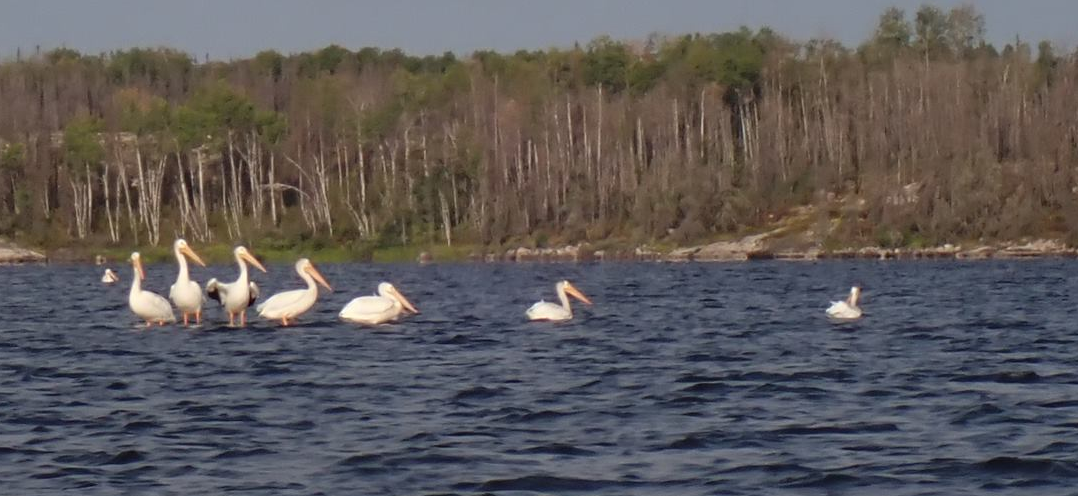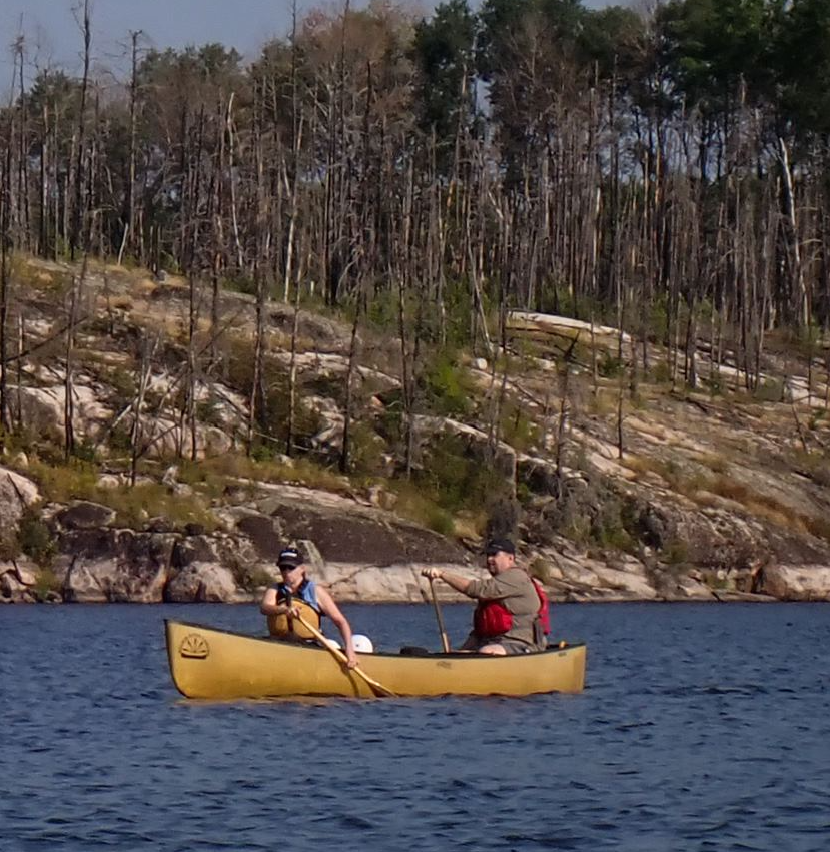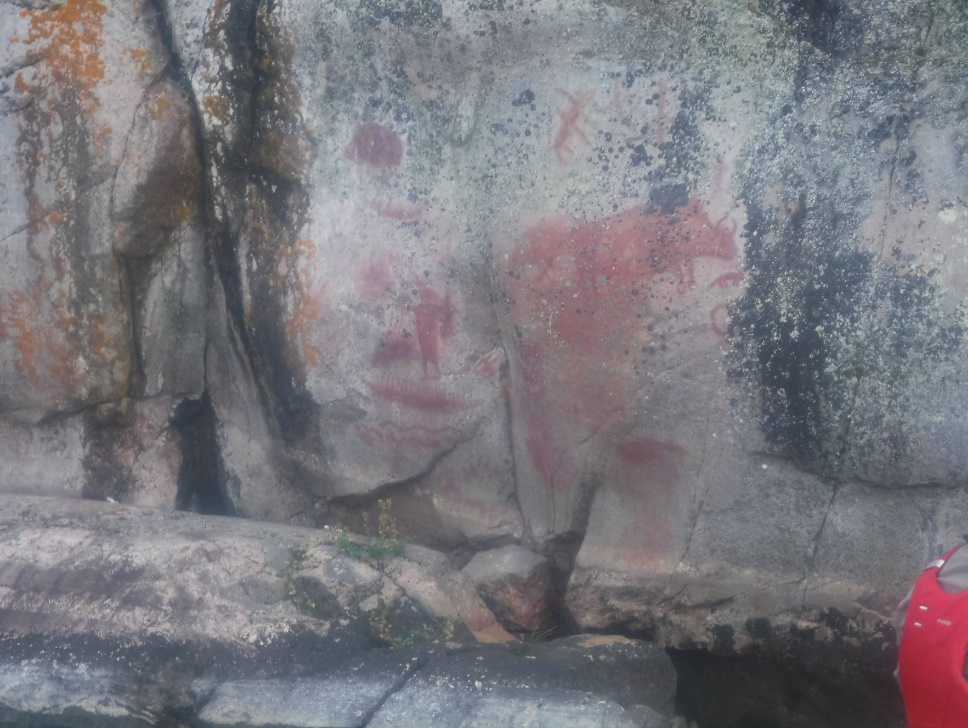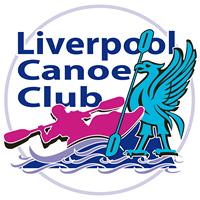Search
2024 Bloodvein River, Canada Day 2 by Ian Bell
Bloodvein River, Canada
Day 2: Barclay Lake – Artery Lake (30km)
by Ian Bell
Having had a very comfy first night out in the wilderness on our island camp. We woke keen to get underway. Having breakfasted and repacked the kit, we were ready for the off. A quick check of the map and we started to paddle. The map check was more of a formality as Nikki had noted the route out of the lake from the plane as we flew in.
We paddled past the pelicans roosting on a low-lying rock island between where we had landed and the camp island.

As we left the lake and entered the more distinct river channel. There was evidence of a forest fire from 2 years ago.

The teams settled into a paddling rhythm and kept an eye out for moose but did not see any on this occasion. Probably because the best opportunity would be very early morning or dusk when they feed. By now the temperature was rising so the obligatory elevenses were taken on an overgrown bank with some trees for shade.
We passed a small pictograph site before reaching the first significant rapid of the river. Rapid 8 – our first rapid with a choice of routes, north was a short 30m portage around a DNR (Do Not Run) and paddle out a grade 2, south was a grade 4 with a 20m portage option.
We went north for our first bit of white water. After the portage of the DNR we inspected the lower part of the Rapid deciding on the line we would take. Graham and I found ourselves back on the water first and so were the first boat to run this rapid. This was a steep and good grade 2+. We all managed to make it safely down and then continued on.
Next, we found the best preserved of the pictographs and remains of an offering of tobacco that previous groups had left here. These are the ones featured in the various videos of previous trips that are available on YouTube.

From here the river opens out into Artery Lake. We saw a couple of fishing boats (small open rowing boats) with a couple of people fishing. There is an off-grid fishing lodge at the other end of the lake and an off-grid cabin in poor repair where one of the campsites was marked. These would be the last people we would see for a week or so.
